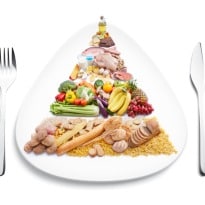Be it the elderly or the young, heart ailments like cholesterol and blood pressure have become common lifestyle problems. Cardiovascular diseases impose a serious health threat with increased risk of stroke or heart attacks. In fact, heart diseases have become the leading cause of deaths around the world. For long, nutritionists and health experts have preached that simple solutions like regular exercise, healthy diet and weight management can help in preventing heart disease. Out of these, a healthy diet plays a very crucial role. The enemies of the heart are those foods that increase your cholesterol levels, as they tend to be calorie-heavy too. This would make you steer clear of all fats and fatty foods. But, you should know that more than the amount of fat, the type of fat consumed matters. Trans fats are the worst type of fat, as they reduce your good cholesterol and shoot up your bad cholesterol but not all fats are bad for your heart. (More: All about good and bad fats)While most of us may know that unsaturated fats are good for the heart, a new study conducted by Japanese scientists validates the fact. The study reveals that too much dietary fat is bad but the right kind of fat keeps the heart healthy.
The findings prove that unsaturated dietary fatty acids such as eicosapentaenoic acid (EPA) are known to protect against cardiovascular diseases. The experiments showed that mice engineered to produce their own EPA are protected against heart disease and have improved cardiac function. (More: Big fat surprise - Butter & cheese are not bad for you)One particular EPA metabolite, called 18-hydroxyeicosapentaenoic acid (18-HEPE) was required for this protection. This was produced by immune cells called macrophages which dampened inflammation and fibrosis in the heart. Treatment with 18-HEPE confirmed its heart-protective effects."A diet enriched in 18-HEPE might help prevent heart failure in patients with cardiovascular diseases," noted researchers. The study was published in the Journal of Experimental Medicine.With inputs from IANS
The findings prove that unsaturated dietary fatty acids such as eicosapentaenoic acid (EPA) are known to protect against cardiovascular diseases. The experiments showed that mice engineered to produce their own EPA are protected against heart disease and have improved cardiac function. (More: Big fat surprise - Butter & cheese are not bad for you)One particular EPA metabolite, called 18-hydroxyeicosapentaenoic acid (18-HEPE) was required for this protection. This was produced by immune cells called macrophages which dampened inflammation and fibrosis in the heart. Treatment with 18-HEPE confirmed its heart-protective effects."A diet enriched in 18-HEPE might help prevent heart failure in patients with cardiovascular diseases," noted researchers. The study was published in the Journal of Experimental Medicine.With inputs from IANS
Advertisement









